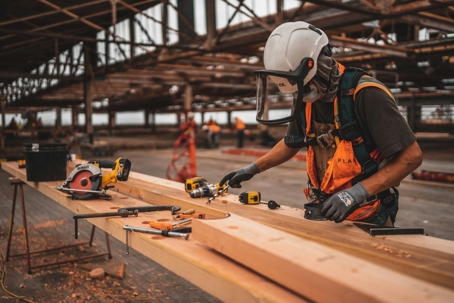Real property contractors in Nevada face a difficult task in managing their sales and use tax requirements because of complex rules and business operations that can create varying obligations. Knowing when you must collect sales tax from customers and remit use tax to the Nevada Department of Taxation are essential items for avoiding underpayments, lengthy audit processes, and expensive assessments.
We discuss this topic in depth below, based on Nevada Bulletin SUT 14-0002. When sales tax challenges arise in your contracting business, our sales tax professionals can support you or your clients during an audit, appeal, or another administrative sales tax issue with the state of Nevada.
How Nevada Defines Construction Contractors for Sales Tax Purposes
Nevada law defines a construction contractor under NAC 372.190 as anyone who constructs, alters, repairs, adds to, remodels, or improves real property. The term broadly includes subcontractors, interior decorators, and specialty contractors. However, employees, licensed architects, licensed engineers, and manufacturers of modular or prefabricated homes are generally excluded.
Paying Sales or Use Tax on Materials and Equipment for Construction Contractor Work
Similar to many other states, Nevada takes the position that construction contractors are the consumers of the materials and equipment they use to complete their work on real property. See NAC 372.200. This means they pay sales tax to their suppliers and do not collect sales tax from their customers. If materials and equipment were purchased outside of Nevada, then you will generally need to pay use tax. However, contractors can typically claim a credit for the amount paid in sales tax to another state under NAC 372.055, which could reduce or eliminate their tax burden in Nevada.
When Do You Need to Register for a Nevada Sales Tax Permit as a Contractor?
As a contractor, the need to register for a seller’s permit with the Nevada Department of Taxation depends on whether your work is solely on real property or not. Many contractors wear multiple hats in their business operations depending on their skillset and the work they do. As a result, your business may do more than simply construct and improve real property. It may also involve the fabrication of tangible personal property, which could make you a retailer responsible for collecting sales tax.
Fabricating Tangible Personal Property
If you sell fabricated products but do not install or affix them, then you will likely need to register for a seller’s permit in Nevada. You will generally need to collect and remit sales tax on the purchase price of these items. However, you are able to purchase the raw materials used in the fabrication of the finished product with a resale exemption certificate. Contractors must be very careful when purchasing materials with a resale certificate to ensure they pay use tax on items later incorporated into real property projects.
Improvements to Real Property
Whether your job as a contractor involves fabricated tangible personal property or an improvement to real property can be a difficult analysis. As stated in SUT 14-0002, the Nevada Department of Taxation relies on the following factors to determine if an installation is an improvement to real property or not:
- Whether removal would destroy the item or significantly damage the real property
- Whether the item’s historic use reflects an intent to leave it in place
- Whether any written lease agreement shows an intent to remove or transfer ownership of the installed item
- Whether ownership would transfer with the conveyance of the real property.
If the item is an improvement to real property, the contractor does not collect sales tax from the customer but will likely need to pay use tax for the incorporated materials.
Key Nevada Sales Tax Compliance Issues for Real Property Contractors
Contractors can find themselves in difficult situations with the Nevada Department of Taxation because of the potential to be a consumer and retailer in their business. Many state tax departments are aware of these compliance challenges, which is why contractors are a popular target for a sales and use tax audit. The following practices in your business could be a cause for concern and lead to a risk of receiving a future audit notice:
- Adding sales tax to invoices and contracts for real property improvements, which could make the entire contract price taxable.
- Purchasing materials and equipment for use on a construction project with a resale certificate
- Misclassifying retail sales of personal property as real property improvements
- Not paying use tax or claiming credits on materials and equipment purchased outside of Nevada
- Bundled transactions that involve a combination of real property improvements and retail sales of personal property
Most sales tax issues with your real property contractor business can be handled with a proper understanding of your work’s taxability and setting up invoicing and accounting systems that support your business model.
Get Help with a Nevada Sales Tax Audit or Assessment Appeal
Our sales tax professionals have experience helping construction contractors and others who provide services to real property in understanding and defending their sales tax compliance. If you or a client have questions about an upcoming audit, have doubts about an assessment, or need help with a refund or credit claim, we can help.
Schedule a consultation with our Nevada sales tax professionals today.

